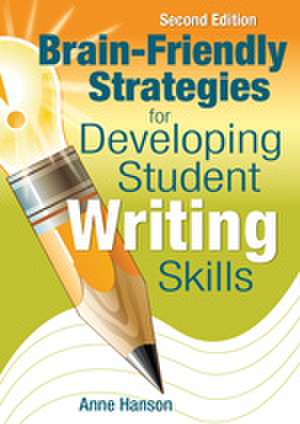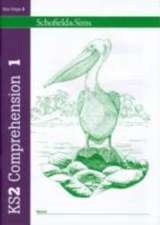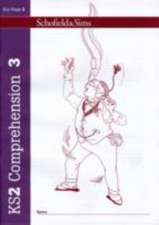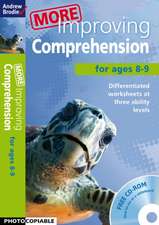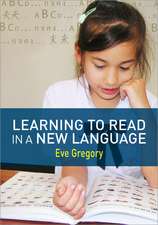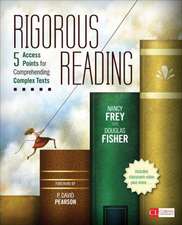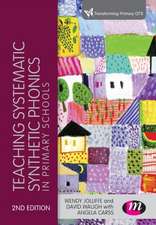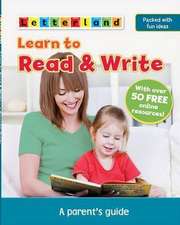Brain-Friendly Strategies for Developing Student Writing Skills
Editat de Anne M. Hansonen Limba Engleză Paperback – 3 dec 2008
| Toate formatele și edițiile | Preț | Express |
|---|---|---|
| Paperback (1) | 282.62 lei 6-8 săpt. | |
| SAGE Publications – 3 dec 2008 | 282.62 lei 6-8 săpt. | |
| Hardback (1) | 514.89 lei 6-8 săpt. | |
| SAGE Publications – 18 noi 2008 | 514.89 lei 6-8 săpt. |
Preț: 282.62 lei
Nou
Puncte Express: 424
Preț estimativ în valută:
54.08€ • 56.12$ • 45.21£
54.08€ • 56.12$ • 45.21£
Carte tipărită la comandă
Livrare economică 15-29 martie
Preluare comenzi: 021 569.72.76
Specificații
ISBN-13: 9781412963503
ISBN-10: 1412963508
Pagini: 200
Dimensiuni: 178 x 254 x 18 mm
Greutate: 0.41 kg
Ediția:Second Edition
Editura: SAGE Publications
Colecția Corwin
Locul publicării:Thousand Oaks, United States
ISBN-10: 1412963508
Pagini: 200
Dimensiuni: 178 x 254 x 18 mm
Greutate: 0.41 kg
Ediția:Second Edition
Editura: SAGE Publications
Colecția Corwin
Locul publicării:Thousand Oaks, United States
Recenzii
"The major strengths of this book are the implications of current brain research and how to maximize student learning and enjoyment in the learning process. It’s all about the learning in the classroom, which is where the focus must be."
"Provides teachers with applicable research on brain-compatible learning and provides students with tools for developing their talent as writers."
"Explains brain research in easy-to-understand language and includes real classroom stories from diverse grade levels and student populations, as well as cross-curricular writing activities that foster high literacy and performance on high-stakes tests. Any teacher who wants reliable research to support effective, brain-friendly instruction should read this book and share it with colleagues and administrators."
"Allows teachers to see the inside of a successful system for teaching students to write with confidence and proficiency. Hanson offers experience and personal learning on how the brain works and thinks about communication through writing."
"Recognizes the importance of preparing teachers to act as involved researchers in their own classrooms. The book encourages teachers to develop practices that will help their students become lifelong learners, not just competent test takers."
"Instructional leaders are constantly looking for ways to help teachers work smarter, not harder, in the quest to maximize student achievement. Hanson provides a brain-compatible framework to do precisely that."
"A one-of-a-kind, practical text for all teachers. Hanson takes us on a journey by providing teaching strategies and specific examples to prepare students to become lifelong writers!"
"During the past thirty years as an English teacher and professor, as an educational publisher and national writing consultant, and as the director of the Educational Leadership Institute, I have not seen a more powerful book on the teaching of writing. Think of this book as a gift to yourself, your colleagues, and your students. Think of it as a spark that just might initiate a renaissance in the way writing is taught."
"Provides teachers with applicable research on brain-compatible learning and provides students with tools for developing their talent as writers."
"Explains brain research in easy-to-understand language and includes real classroom stories from diverse grade levels and student populations, as well as cross-curricular writing activities that foster high literacy and performance on high-stakes tests. Any teacher who wants reliable research to support effective, brain-friendly instruction should read this book and share it with colleagues and administrators."
"Allows teachers to see the inside of a successful system for teaching students to write with confidence and proficiency. Hanson offers experience and personal learning on how the brain works and thinks about communication through writing."
"Recognizes the importance of preparing teachers to act as involved researchers in their own classrooms. The book encourages teachers to develop practices that will help their students become lifelong learners, not just competent test takers."
"Instructional leaders are constantly looking for ways to help teachers work smarter, not harder, in the quest to maximize student achievement. Hanson provides a brain-compatible framework to do precisely that."
"A one-of-a-kind, practical text for all teachers. Hanson takes us on a journey by providing teaching strategies and specific examples to prepare students to become lifelong writers!"
"During the past thirty years as an English teacher and professor, as an educational publisher and national writing consultant, and as the director of the Educational Leadership Institute, I have not seen a more powerful book on the teaching of writing. Think of this book as a gift to yourself, your colleagues, and your students. Think of it as a spark that just might initiate a renaissance in the way writing is taught."
Cuprins
Acknowledgments
About the Author
Preface
1. Introducing the Brain-Compatible Framework for Student Achievement
Four Brain-Compatible Classroom Principles
Five Core Propositions of Accomplished Teaching
Six Features of Effective Instruction
The Brain-Compatible Framework for Student Achievement
A Brain Journey
Celebrating the Learning Brain
21st-Century Brain-Compatible Teachers
21st-Century High-Stakes-Tested Students
Can You Hear Me Now?
Questions for Reflection
2. Making Connections Across Instruction, Curriculum, and Life
Characteristics of Feature One
Reflecting on the Brain-Compatible Framework and Feature One
The Brain-Compatible Framework With Feature One in Action
Learning About Our Students
Brain Surveys
Writing Connections
Writing: Pleasure or Pain?
Seven Stages of Brain-Friendly Writing Instruction
Verbs Are Your Friends: Describing Verbs
How, Why, and What Verbs
Questions for Reflection
3. Teaching Skills in Multiple Lesson Types
Characteristics of Feature Two
Separate, Simulated, and Integrated Instruction
Reflecting on the Brain-Compatible Framework and Feature Two
The Brain-Compatible Framework With Feature Two in Action
Questions for Reflection
4. Integrating Test Preparation Into Instruction
Characteristics of Feature Three?s Successful Teachers
Reflecting on the Brain-Compatible Framework and Feature Three
The Brain-Compatible Framework With Feature Three in Action
Test Savvy
Hero Quest
Questions for Reflection
5. Teaching Students Strategies for Doing the Work
Characteristics of Feature Four
Reflecting on the Brain-Compatible Framework and Feature Four
The Brain-Compatible Framework With Feature Four in Action
The Clue to Exact Writing
Setting the Stage for Authentic Assessment and Learning
Questions for Reflection
6. Expecting Generative Thinking
Characteristics of Feature Five
Reflecting on the Brain-Compatible Framework and Feature Five
The Brain-Compatible Framework and Feature Five in Action
Generative Thinking in Elementary School
Generative Thinking in Middle School
Generative Thinking in High School
Writing and Generative Thinking
Questions for Reflection
7. Fostering Cognitive Collaboration
Characteristics of Feature Six
Reflecting on the Brain-Compatible Framework and Feature Six
The Brain-Compatible Framework and Feature Six in Action
Collaboration and Seating Arrangements
Cognitive Collaboration Beyond the Classroom: Community Writing Partners
Celebrate the Results
Authors' Day
Questions for Reflection
8. Envisioning Every Child as a Lifelong Learner
References
Index
About the Author
Preface
1. Introducing the Brain-Compatible Framework for Student Achievement
Four Brain-Compatible Classroom Principles
Five Core Propositions of Accomplished Teaching
Six Features of Effective Instruction
The Brain-Compatible Framework for Student Achievement
A Brain Journey
Celebrating the Learning Brain
21st-Century Brain-Compatible Teachers
21st-Century High-Stakes-Tested Students
Can You Hear Me Now?
Questions for Reflection
2. Making Connections Across Instruction, Curriculum, and Life
Characteristics of Feature One
Reflecting on the Brain-Compatible Framework and Feature One
The Brain-Compatible Framework With Feature One in Action
Learning About Our Students
Brain Surveys
Writing Connections
Writing: Pleasure or Pain?
Seven Stages of Brain-Friendly Writing Instruction
Verbs Are Your Friends: Describing Verbs
How, Why, and What Verbs
Questions for Reflection
3. Teaching Skills in Multiple Lesson Types
Characteristics of Feature Two
Separate, Simulated, and Integrated Instruction
Reflecting on the Brain-Compatible Framework and Feature Two
The Brain-Compatible Framework With Feature Two in Action
Questions for Reflection
4. Integrating Test Preparation Into Instruction
Characteristics of Feature Three?s Successful Teachers
Reflecting on the Brain-Compatible Framework and Feature Three
The Brain-Compatible Framework With Feature Three in Action
Test Savvy
Hero Quest
Questions for Reflection
5. Teaching Students Strategies for Doing the Work
Characteristics of Feature Four
Reflecting on the Brain-Compatible Framework and Feature Four
The Brain-Compatible Framework With Feature Four in Action
The Clue to Exact Writing
Setting the Stage for Authentic Assessment and Learning
Questions for Reflection
6. Expecting Generative Thinking
Characteristics of Feature Five
Reflecting on the Brain-Compatible Framework and Feature Five
The Brain-Compatible Framework and Feature Five in Action
Generative Thinking in Elementary School
Generative Thinking in Middle School
Generative Thinking in High School
Writing and Generative Thinking
Questions for Reflection
7. Fostering Cognitive Collaboration
Characteristics of Feature Six
Reflecting on the Brain-Compatible Framework and Feature Six
The Brain-Compatible Framework and Feature Six in Action
Collaboration and Seating Arrangements
Cognitive Collaboration Beyond the Classroom: Community Writing Partners
Celebrate the Results
Authors' Day
Questions for Reflection
8. Envisioning Every Child as a Lifelong Learner
References
Index
Descriere
This second edition helps develop confident and competent young writers through brain-compatible strategies aligned with district and national standards
